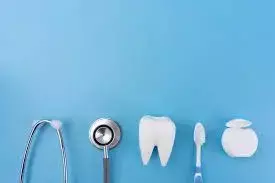- Home
- Medical news & Guidelines
- Anesthesiology
- Cardiology and CTVS
- Critical Care
- Dentistry
- Dermatology
- Diabetes and Endocrinology
- ENT
- Gastroenterology
- Medicine
- Nephrology
- Neurology
- Obstretics-Gynaecology
- Oncology
- Ophthalmology
- Orthopaedics
- Pediatrics-Neonatology
- Psychiatry
- Pulmonology
- Radiology
- Surgery
- Urology
- Laboratory Medicine
- Diet
- Nursing
- Paramedical
- Physiotherapy
- Health news
- Fact Check
- Bone Health Fact Check
- Brain Health Fact Check
- Cancer Related Fact Check
- Child Care Fact Check
- Dental and oral health fact check
- Diabetes and metabolic health fact check
- Diet and Nutrition Fact Check
- Eye and ENT Care Fact Check
- Fitness fact check
- Gut health fact check
- Heart health fact check
- Kidney health fact check
- Medical education fact check
- Men's health fact check
- Respiratory fact check
- Skin and hair care fact check
- Vaccine and Immunization fact check
- Women's health fact check
- AYUSH
- State News
- Andaman and Nicobar Islands
- Andhra Pradesh
- Arunachal Pradesh
- Assam
- Bihar
- Chandigarh
- Chattisgarh
- Dadra and Nagar Haveli
- Daman and Diu
- Delhi
- Goa
- Gujarat
- Haryana
- Himachal Pradesh
- Jammu & Kashmir
- Jharkhand
- Karnataka
- Kerala
- Ladakh
- Lakshadweep
- Madhya Pradesh
- Maharashtra
- Manipur
- Meghalaya
- Mizoram
- Nagaland
- Odisha
- Puducherry
- Punjab
- Rajasthan
- Sikkim
- Tamil Nadu
- Telangana
- Tripura
- Uttar Pradesh
- Uttrakhand
- West Bengal
- Medical Education
- Industry
Convolutional neural networks trained algorithm may help diagnose alveolar bone loss in periapical X-rays

A convolutional neural networks trained algorithm on radiographic images showed a diagnostic performance with moderate to good reliability to detect and quantify percentage alveolar bone loss in periapical radiographs according to a recent study published in the International Dental Journal
The objective of this research was to perform a pilot study to develop an automatic analysis of periapical radiographs from patients with and without periodontitis for the percentage of alveolar bone loss (ABL) on the approximal surfaces of teeth using a supervised machine learning model, that is, convolutional neural networks (CNN).
A total of 1546 approximal sites from 54 participants on mandibular periapical radiographs were manually annotated (MA) for a training set (n = 1308 sites), a validation set (n = 98 sites), and a test set (n = 140 sites). The training and validation sets were used for the development of a CNN algorithm. The algorithm recognised the cemento-enamel junction, the most apical extent of the alveolar crest, the apex, and the surrounding alveolar bone.
Results:
- For the total of 140 images in the test set, the CNN scored a mean of 23.1 ± 11.8 %ABL, whilst the corresponding value for MA was 27.8 ± 13.8 %ABL.
- The intraclass correlation (ICC) was 0.601 (P < .001), indicating moderate reliability.
- Further subanalyses for various tooth types and various bone loss patterns showed that ICCs remained significant, although the algorithm performed with excellent reliability for %ABL on non molar teeth (incisors, canines, premolars; ICC = 0.763).
A CNN-trained algorithm on radiographic images showed a diagnostic performance with moderate to good reliability to detect and quantify %ABL in periapical radiographs.
Reference:
Nektarios Tsoromokos, Sarah Parinussa, Frank Claessen, David Anssari Moin, Bruno G. Loos. Estimation of Alveolar Bone Loss in Periodontitis Using Machine Learning. International Dental Journal, Volume 72, Issue 5, 2022, Pages 621-627, ISSN 0020-6539, https://doi.org/10.1016/j.identj.2022.02.009.
Dr. Shravani Dali has completed her BDS from Pravara institute of medical sciences, loni. Following which she extensively worked in the healthcare sector for 2+ years. She has been actively involved in writing blogs in field of health and wellness. Currently she is pursuing her Masters of public health-health administration from Tata institute of social sciences. She can be contacted at editorial@medicaldialogues.in.
Dr Kamal Kant Kohli-MBBS, DTCD- a chest specialist with more than 30 years of practice and a flair for writing clinical articles, Dr Kamal Kant Kohli joined Medical Dialogues as a Chief Editor of Medical News. Besides writing articles, as an editor, he proofreads and verifies all the medical content published on Medical Dialogues including those coming from journals, studies,medical conferences,guidelines etc. Email: drkohli@medicaldialogues.in. Contact no. 011-43720751


